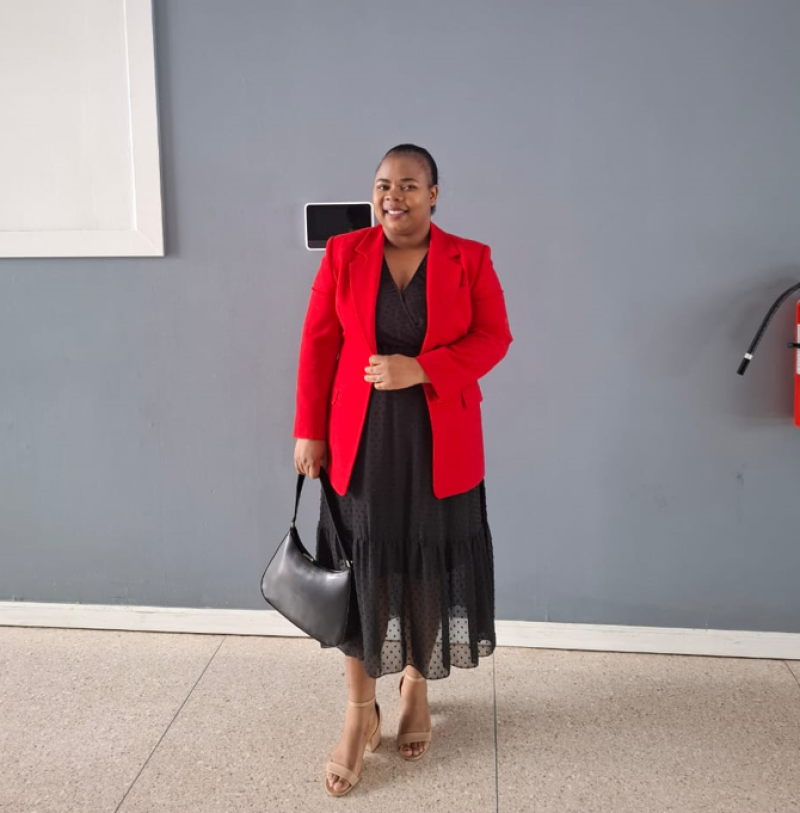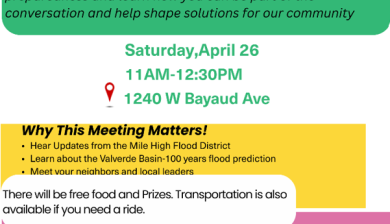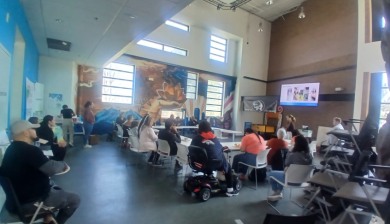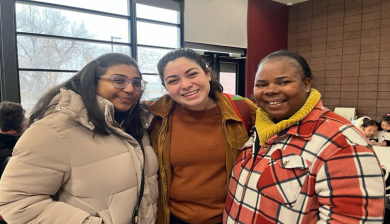Community-Engaged Fellow Collaborating with the Valverde Movement Project
By: Elizabeth Nselema, Graduate School of Social Work

Introduction
My name is Elizabeth Nselema, and I am a Master of Social Work (MSW) student at the University of Denver’s Graduate School of Social Work. I come from Malawi (The Warm Heart of Africa) and bring to my work a cross-cultural perspective shaped by my identity as an international student of color.
In Malawi, I’ve had the privilege of working with diverse communities in the areas of agriculture, community development, and empowerment. My passion lies in engaging with people who are often overlooked, those who are disadvantaged or in need of support. There’s something deeply fulfilling about walking alongside individuals and communities as they navigate challenges and begin to build better lives.
What drives me most is seeing change take root-real, tangible transformation in people’s lives. Whether it’s a farmer adopting a new method that improves their yield, or a young person gaining the confidence to lead a community initiative, these moments of growth and empowerment remind me why this work matters. I believe that lasting change comes from within communities themselves, and I’m honored to be part of the journey that helps bring those stories to life.
While my academic journey has deepened my knowledge of social work, my community engagement journey through the Center for Community Engagement to advance Scholarship and Learning (CCESL) has been equally transformative. This post reflects on my role in the Valverde Movement Project (VMP), a collaborative, community-centered initiative that allowed me to connect theory with practice in real and meaningful ways.
The Valverde Movement Project -Reimagining Mobility and Undoing Redlining
The Valverde Movement Project is rooted in the historic Valverde neighborhood in Denver, an area deeply affected by redlining and systemic disinvestment. The project focuses on improving transportation equity, street safety, and overall community well-being, while honoring the neighborhood’s history and culture.
As part of this initiative, we engaged in a range of activities, all centered around community voices: Community Engagement Events: These events provided spaces for residents to connect, share input, and become active participants in shaping their neighborhood’s future.
- Storytelling and Oral Histories, from Valverde residents’ stories that highlighted both the injustices of the past and the resilience of the community today.
- Place-Based Storytelling Tour: This tour helped educate the public on the historical and environmental impacts of redlining, while also celebrating community pride and identity.
- Community Engagement Events: We helped organize events that brought residents together to share stories, ideas, and feedback, fostering a sense of collective voice and vision.
My Contributions
I actively participated in the project through multiple roles.
- I helped create community engagement materials such as flyers, newsletters for neighborhood events.
- I attended these events in person, listening to residents’ experiences and contributing to the planning and facilitation of our outreach efforts.
- I also collaborated with various stakeholders—community members, nonprofit partners, city staff, and university researchers—to ensure our work was inclusive and impactful.
- In addition, I helped in searching for grants to support some initiatives under the project. For example, I contributed to identifying funding opportunities for 'The Girls Who Garden'—a group of young girls in the community aiming to sustain a garden as part of their empowerment and environmental stewardship.
Academic Development
Being part of the Valverde Movement Project allowed me to apply key social work frameworks, especially Systems Theory and Asset-Based Community Development (ABCD).
- Systems Theory helped me understand how community challenges like health disparities and lack of resources are tied to broader systems of oppression, such as redlining and policy-based disinvestment.
- ABCD taught me to see the strengths, leadership, and resilience within the Valverde community. Rather than focusing only on needs, we centered assets and empowered residents to lead change.
Professional Development
Collaborating with a diverse team of community leaders, city officials, nonprofit organizations, and researchers helped me build critical professional skills:
- Communication and collaboration
- Cultural humility and respect
- Confidence in co-creating community-centered solutions
These are tools I will carry forward into my future work as a social worker, advocate, or community organizer.
Personal Transformation
This project taught me the power of listening. Hearing stories of resilience from residents who had endured generations of systemic neglect was deeply humbling. It reminded me that true engagement is relational, that justice and healing are intertwined, and that the people closest to the problems must be central to the solutions.
Looking Ahead
Moving forward, I will carry this experience into every project I take on. I’ve learned to slow down, build trust, and co-create with not for communities. I will continue to ask the hard but necessary questions:
- Who is being heard?
- Who is being left out?
- And how can I help shift that?
Final Reflection
My time with CCESL and the Valverde Movement Project helped me connect deeply with people, systems, and the possibilities of change. It affirmed that community engagement work is not only about services, but also about solidarity.


